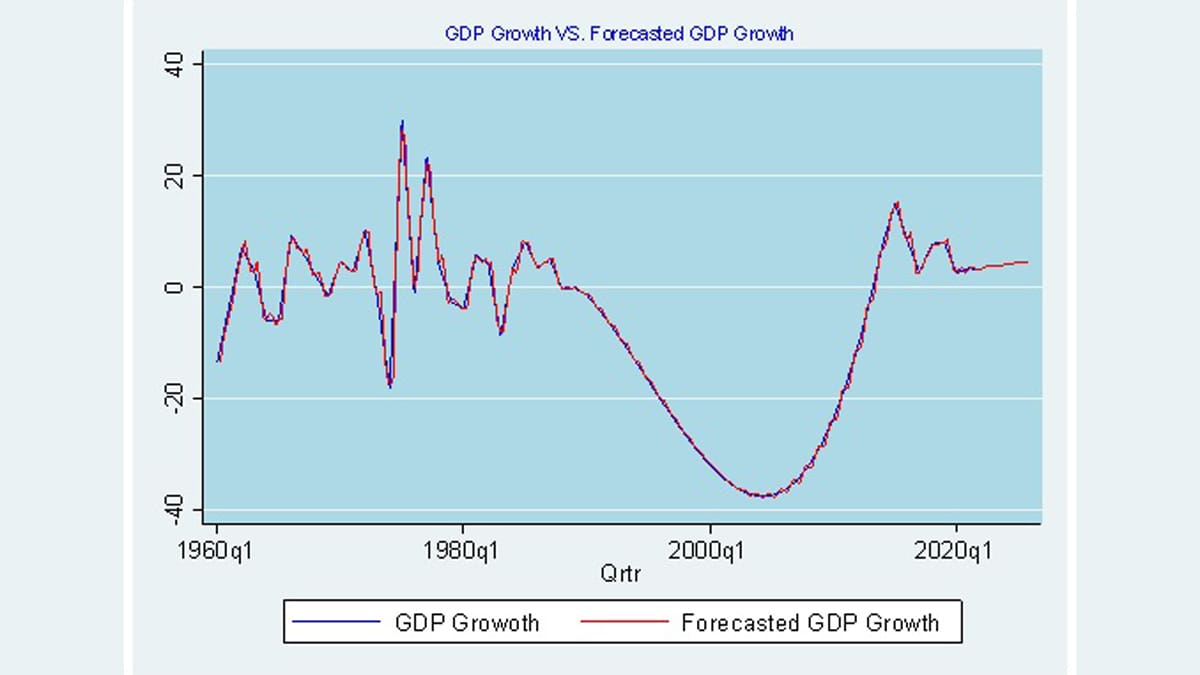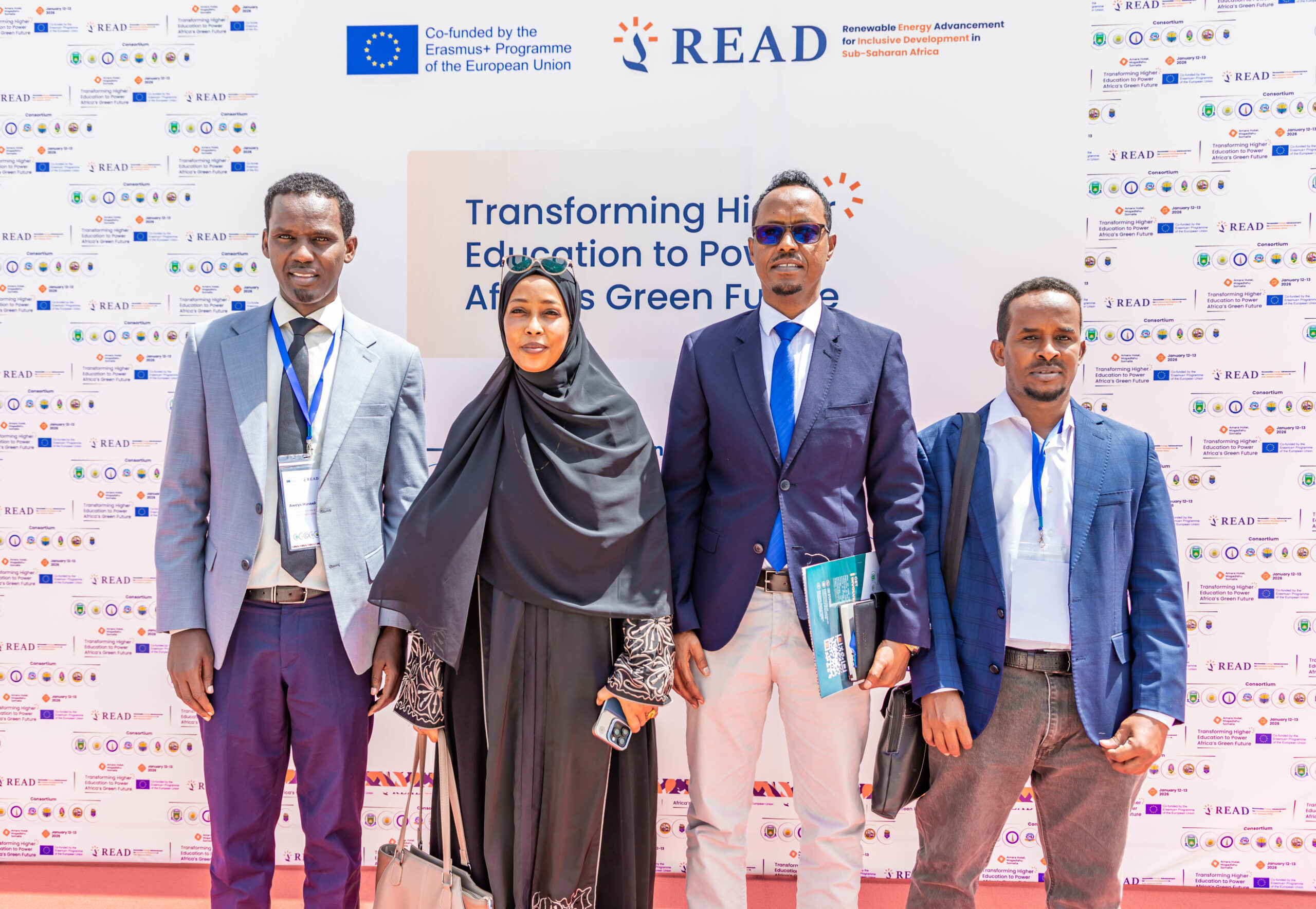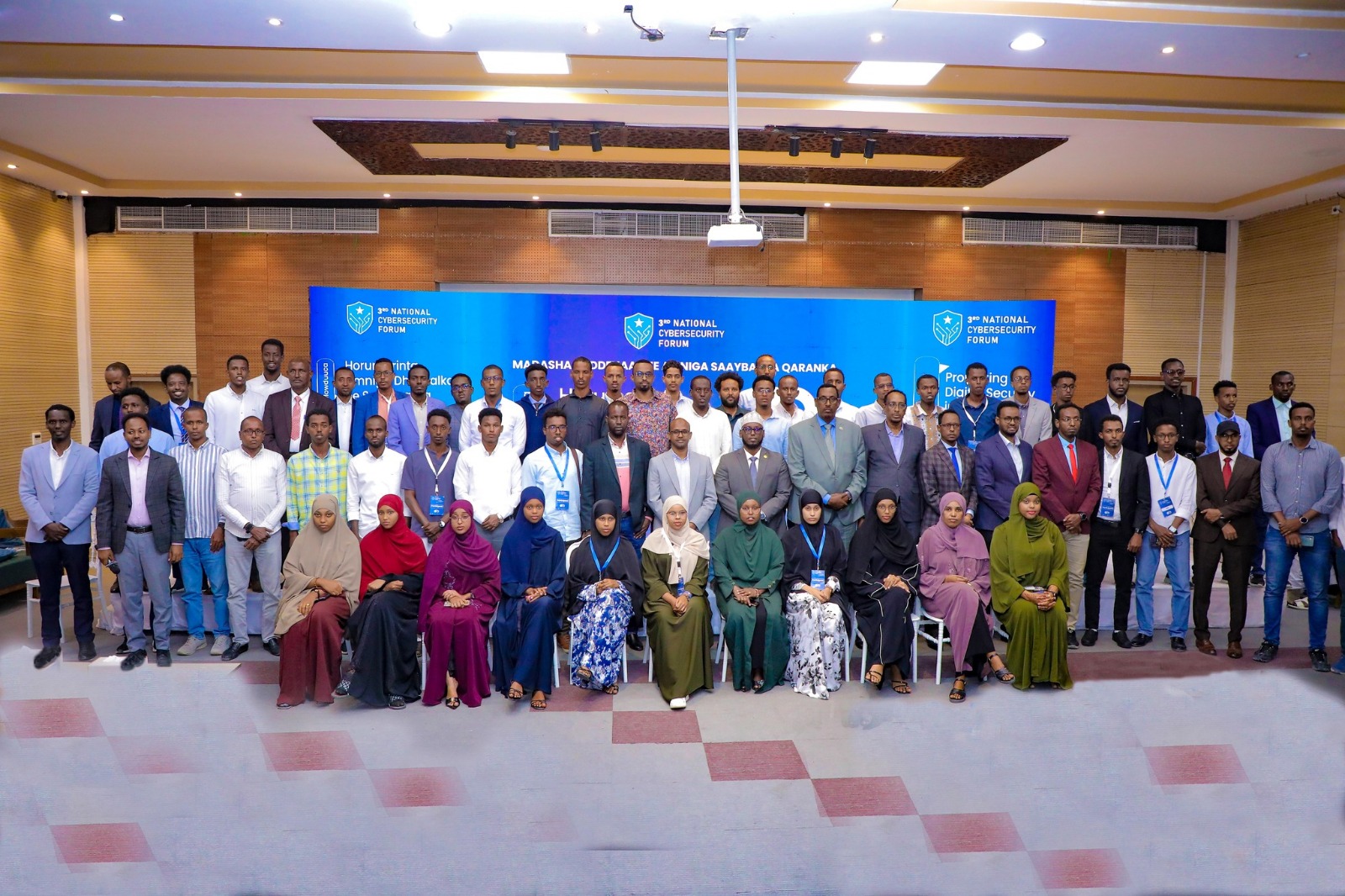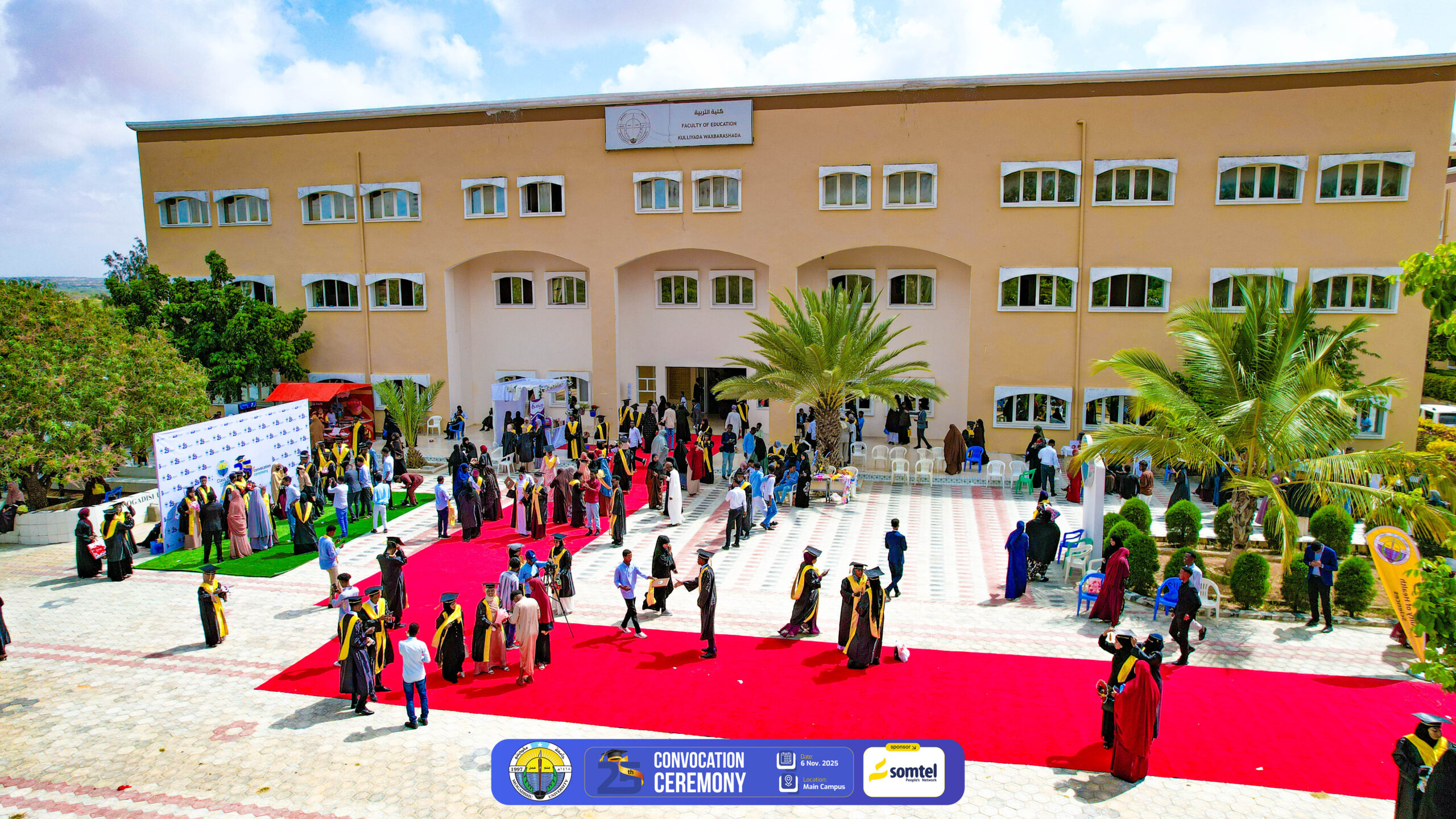Abstract
The study investigated the empirical role of past values of Somalia’s GDP growth rates in its future realizations. Using the Box–Jenkins modeling method, the study utilized 250 in-sample quarterly time series data to forecast out-of-the-sample Somali GDP growth rates for fourteen quarters. Balancing between parsimony and fitness criteria of model selection, the study found Autoregressive Integrated Moving Average ARIMA (5,1,2) to be the most appropriate model to estimate and forecast the trajectory of Somali economic growth. The study sourced the GDP growth data from World Bank World Development Indicators (WDI) for the period between 1960 to 2022. The study results predict that Somalia’s GDP will, on average, experience 4 percent quarterly growth rates for the coming three and half years. To solidify the validity of the forecasting results, the study conducted several ARIMA and rolling window diagnostic tests. The model errors proved to be white noise, the moving average (MA) and Autoregressive (AR) components are covariances stationary, and the rolling window test shows model stability within a 95% confidence interval. These optimistic economic growth forecasts represent a policy dividend for the government of Somalia after almost a decade-long stick-and-carrot economic policies between strict IMF fiscal disciplinary measures and World Bank development investments on target projects. The study, however, acknowledges that the developments of current severe droughts, locust infestations, COVID-19 pandemic, internal political, and security stability, and the active involvement of international development partners will play a crucial role in the realization of these promising growth projections. Full Paper






